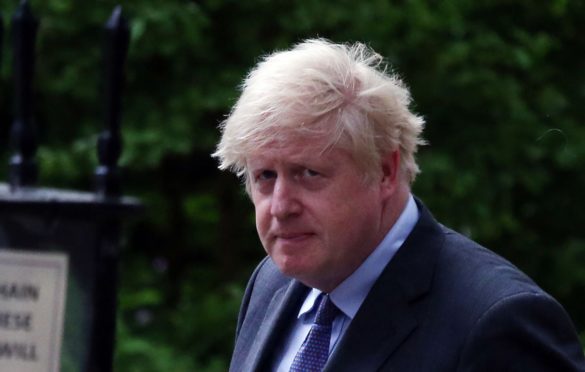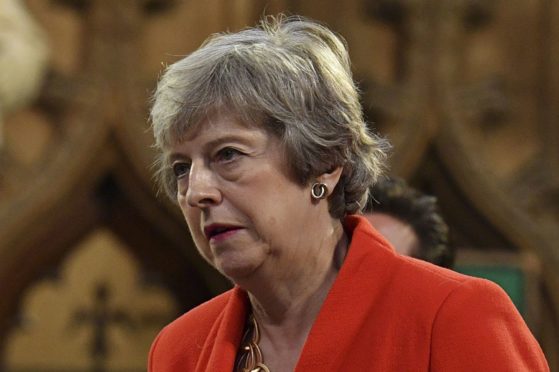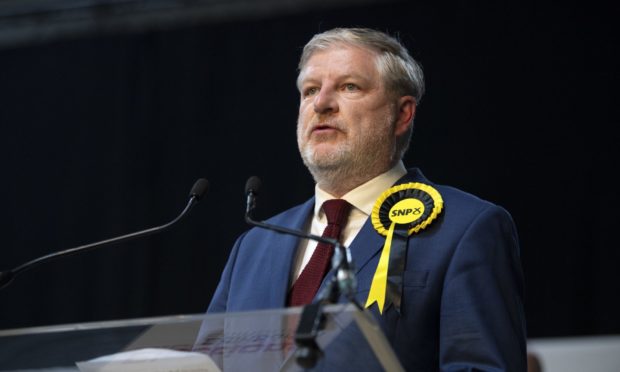Ruth Davidson has branded Boris Johnson’s decision to slash overseas aid “a bloody disgrace”.
MPs voted by a majority of 35 to back the reduced level of aid funding and a new test which critics have warned could mean spending never returns to its target of 0.7% of gross national income.
Twenty four Tories, including former prime minister Theresa May and five other ex-cabinet ministers, condemned the decision – saying it would cost lives.
All six Scottish Tory MPs backed Mr Johnson’s plan.
Not big enough. For colleagues' who stood on manifesto after manifesto committed to this, it's a bloody disgrace. https://t.co/XPulJaxtPY
— Ruth Davidson (@RuthDavidsonPC) July 13, 2021
The party’s former leader Ruth Davidson blasted the move, posting on social media: “For colleagues’ who stood on manifesto after manifesto committed to this, it’s a bloody disgrace.”
Attempting to justify the move, the prime minister said the UK’s public finances are under a “greater strain than ever before in peacetime history”, adding: “Every pound we spend on aid has to be borrowed and, in fact, represents not our money but money that we’re taking from future generations.”
But Mrs May said the cut meant the Government “turns its back on the poorest in the world”.
“This isn’t about palaces for dictators and vanity projects, it’s about what cuts to funding mean – that fewer girls will be educated, more girls and boys will become slaves, more children will go hungry and more of the poorest people in the world will die,” the former prime minister said.
The commitment to 0.7% is written in law and restated in the 2019 Conservative manifesto, but was ditched as the Government attempted to save money in response to the economic carnage caused by coronavirus.
The 0.5% level means more than £10 billion will be spent on aid this year, around £4.4 billion less than if the original commitment had been kept.
Some would-be rebels were won over by a compromise put forward by Chancellor Rishi Sunak, which sets out tests for restoring the 0.7% level.
The funding will be returned to the promised level if the Office for Budget Responsibility (OBR) believes the UK is not borrowing to finance day-to-day spending and underlying debt is falling.
Mr Johnson told MPs “we all believe in the principle that aid can transform lives” and voting for the Government’s motion “will provide certainty for our aid budget and an affordable path back to 0.7% while also allowing for investment in other priorities, including the NHS, schools and the police”.
“As soon as circumstances allow and the tests are met, we will return to the target that unites us,” he insisted.
Under the tests, aid spending might not return to 0.7% before the next general election, scheduled for 2024.
The existing forecasts run to 2025/26 and in no year is the current budget forecast to be in surplus, while net debt is not forecast to start to fall until 2024/25.
Fury
The vote was met with a furious reaction from aid organisations.
Oxfam GB chief executive Danny Sriskandarajah said the vote was a “disaster for the world’s poorest people” and the Government “is putting politics above the lives of world’s most vulnerable communities”.
Romilly Greenhill, UK director of the anti-poverty One Campaign, said: “Today’s result is a needless retreat from the world stage, enforced by the Treasury, at the exact moment the UK should be showing leadership and stepping up to the greatest global crises in our lifetimes.
“It’s akin to cutting the RAF during the Battle of Britain.”
The SNP’s international development spokesman Chris Law took aim at the Scottish Tories over the vote.
He said: “Whether it’s slashing foreign aid or Universal Credit, Douglas Ross must explain why his Scottish Tory MPs have been so silent on devastating Tory cuts that will hit the poorest at home and abroad.”
Scottish Government external affairs secretary Angus Robertson added: “I am greatly disappointed – the Scottish Government continues to believe that the cutting of the overseas aid budget is a deplorable decision that is already hitting the world’s poorest and most marginal communities at a time of great need.
“Scotland remains fully committed to playing our part in tackling shared global challenges including poverty, injustice and inequality, and the Scottish Government is committed to increase the International Development Fund (IDF) by 50% to £15 million.
“As the global pandemic continues, the UK Government should not be turning its back on the poorest. Rather this is precisely the moment when we should be living up to our core values.”
The Scottish Tories were approached for comment.


